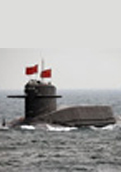India getting closer to a satellite navigational system
The uniqueness of the Indian Regional Navigation Satellite System (IRNSS) is to have a system with satellites in the geostationary orbit. India needs to exploit the ‘regional nature’ of the IRNSS to the fullest and effectively engage various states from Africa, Asia and Oceania region by using ‘satellite navigation diplomacy’.
- Ajey Lele |
- April 07, 2014 |















